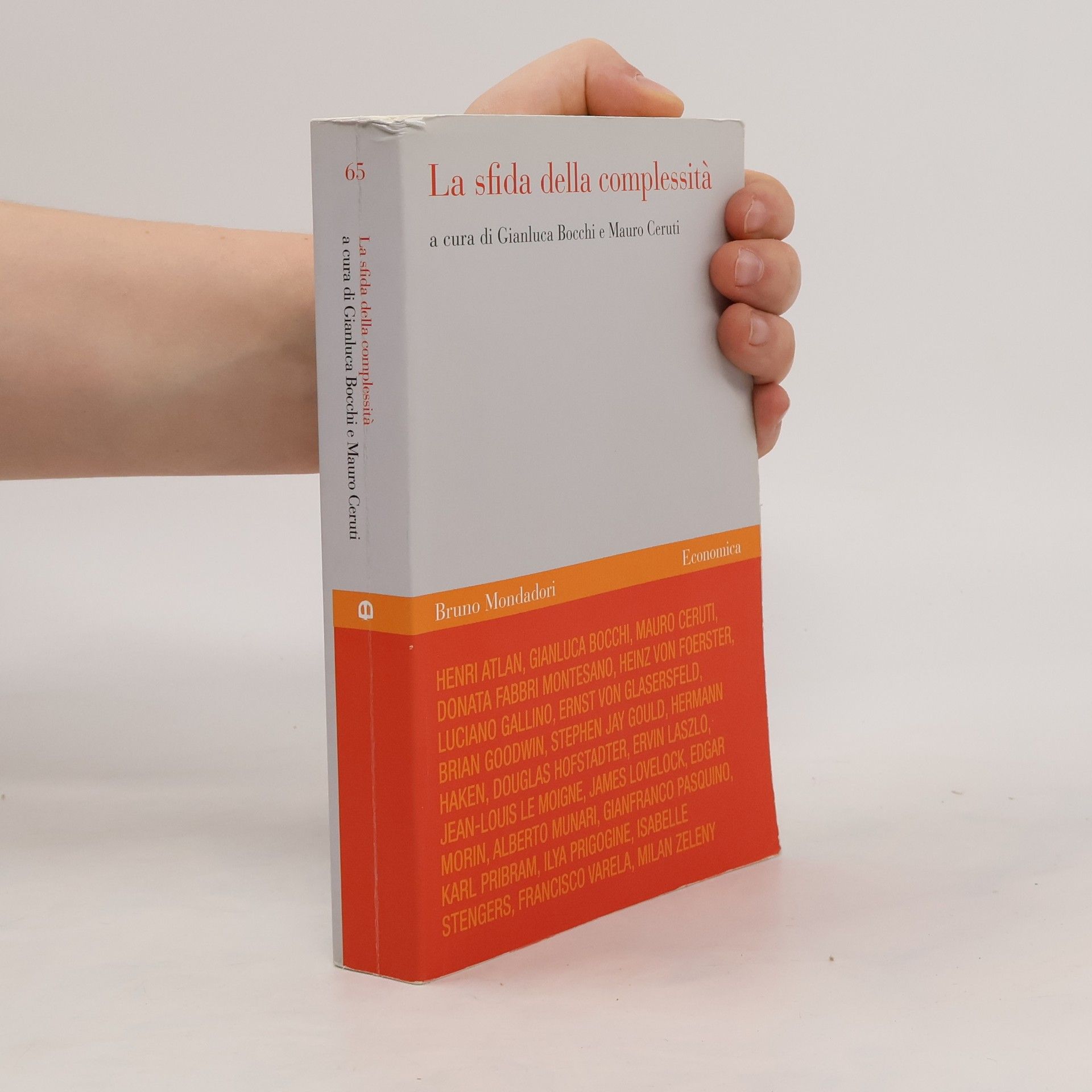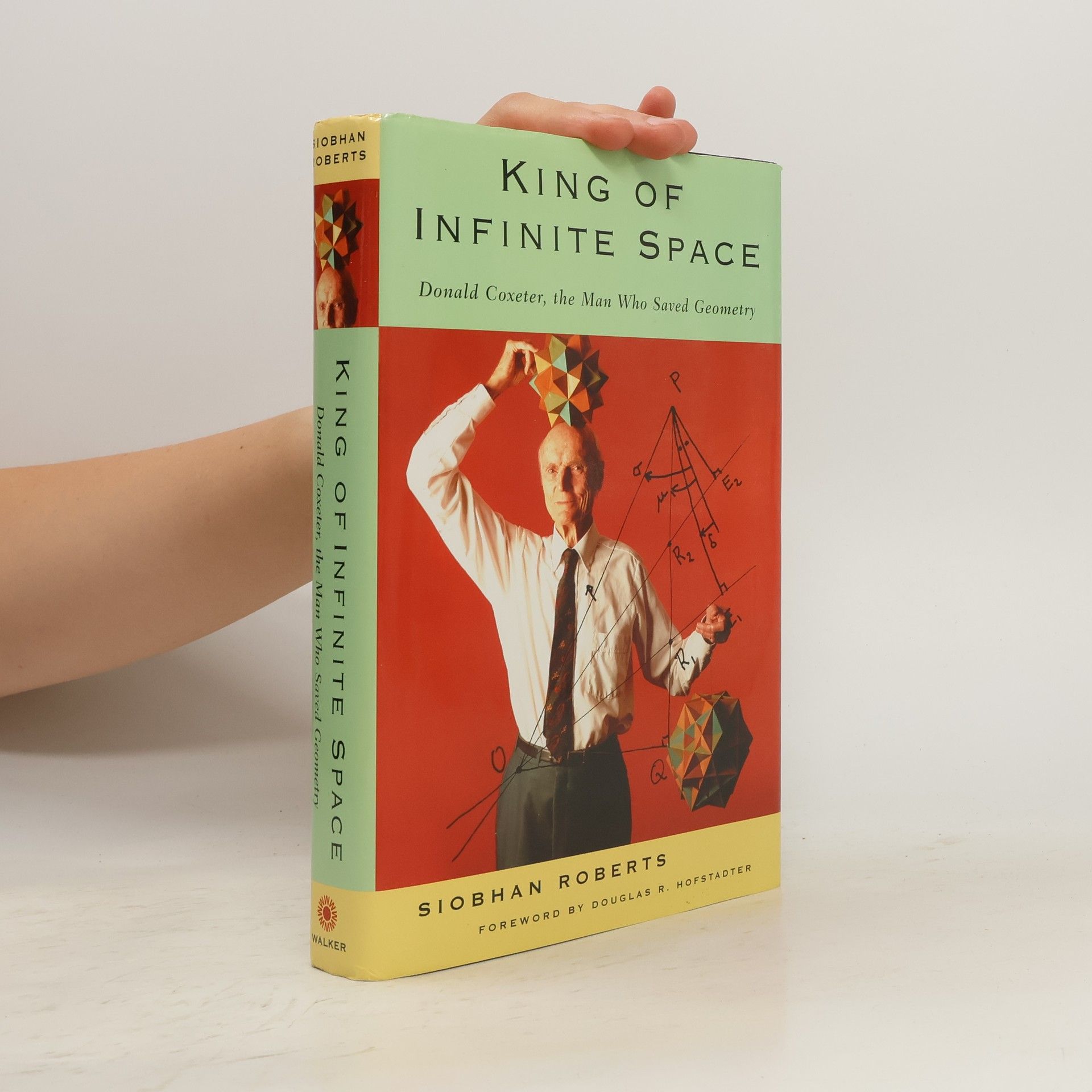Sie steigen in einen Aufzug, mit dem Sie noch nie zuvor gefahren sind. Wissen Sie, was Sie tun müssen, um nach oben zu kommen? Natürlich – und der Grund dafür sind die Analogien: Der Aufzug funktioniert wie alle anderen Aufzüge. Alles, was wir wissen, setzen wir in Beziehungen und schaffen es dadurch, Ähnlichkeiten zu entdecken, uns im Chaos der Welt zurechtzufinden. Diese Ähnlichkeiten machen wir uns täglich und meist ganz unbewusst im Umgang mit Neuem und Fremdem zunutze. Wie dieses Feuerwerk des Denkens »funktioniert«, das zeigen Douglas Hofstadter, brillanter Autor und Pulitzer-Preisträger, und der Psychologe Emmanuel Sander. Sie nehmen uns mit auf eine abenteuerliche Reise in die Welt der Sprache und des Geistes – und sie zeigen uns, warum Gedanken ohne Einfluss der Vergangenheit undenkbar sind. Ein inspirierendes Lesevergnügen!
Douglas Hofstadter Orden de los libros (cronológico)
Douglas Hofstadter es un pensador célebre cuyo trabajo profundiza en las dimensiones de la conciencia, el pensamiento y la creatividad. Empleando la recursión y la analogía, explora las naturalezas entrelazadas de las matemáticas, el arte y la mente. Su estilo literario es conocido por su jovialidad y su profunda exploración de conceptos complejos. Los escritos de Hofstadter invitan a los lectores a reconsiderar la naturaleza de la inteligencia y la interconexión de la experiencia humana.

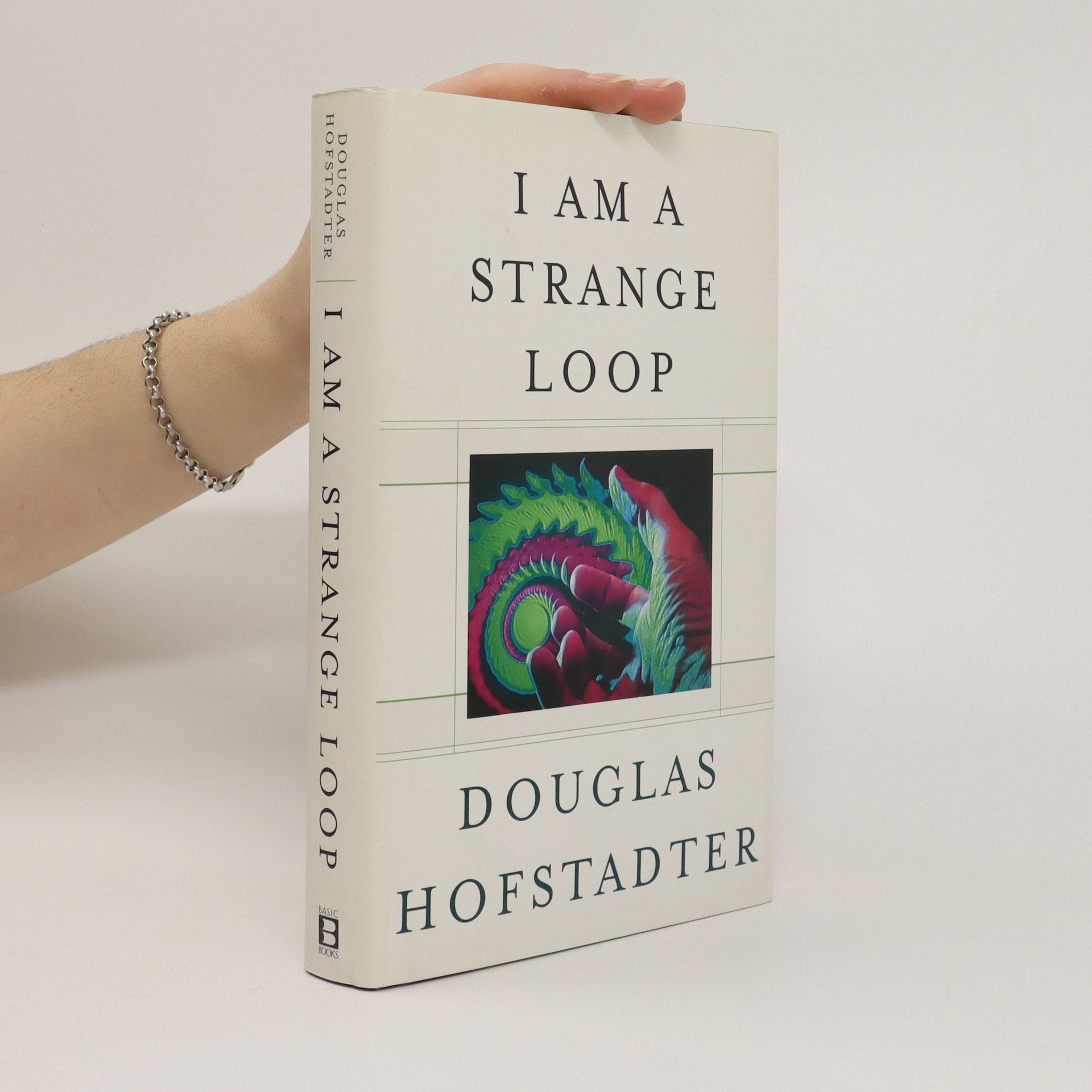

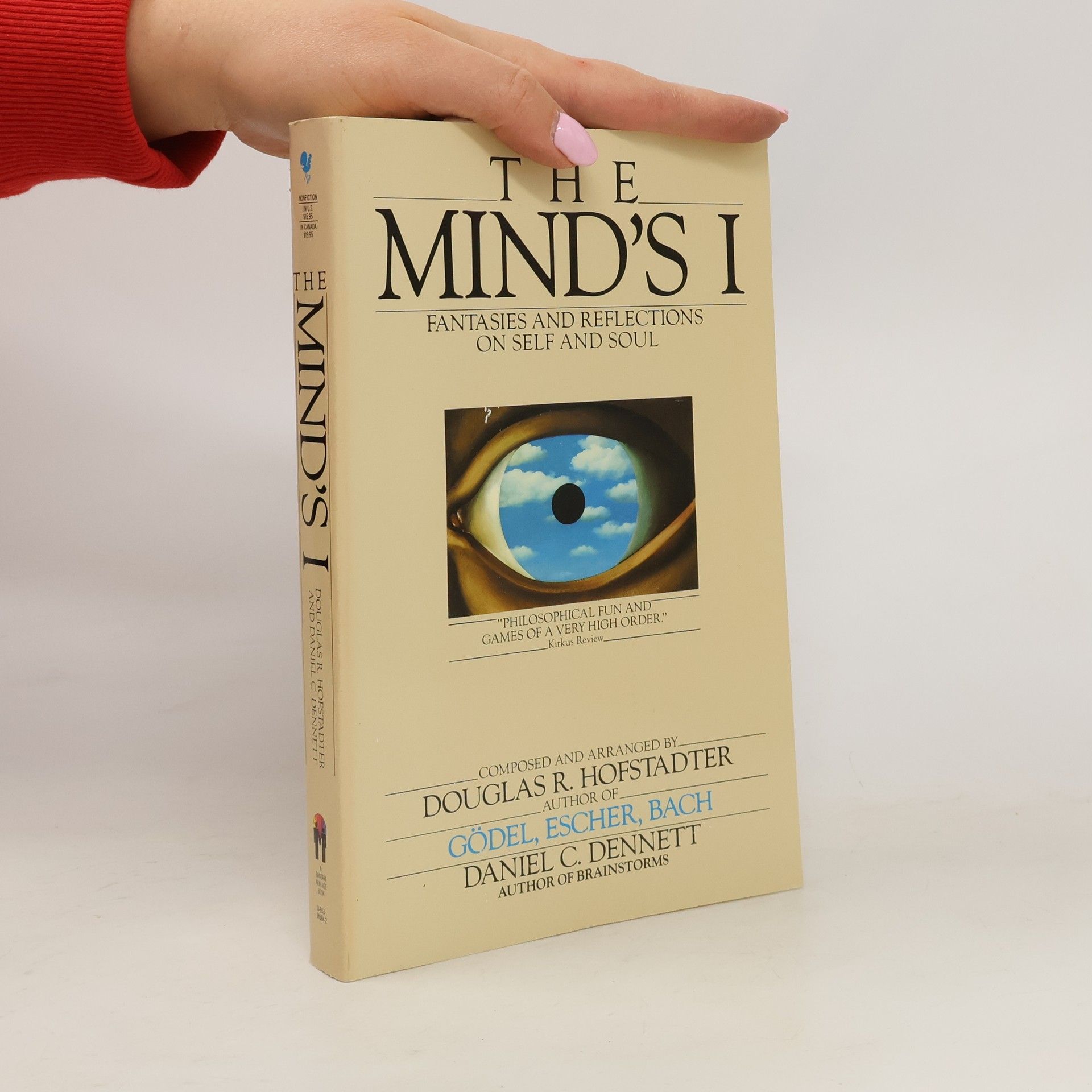
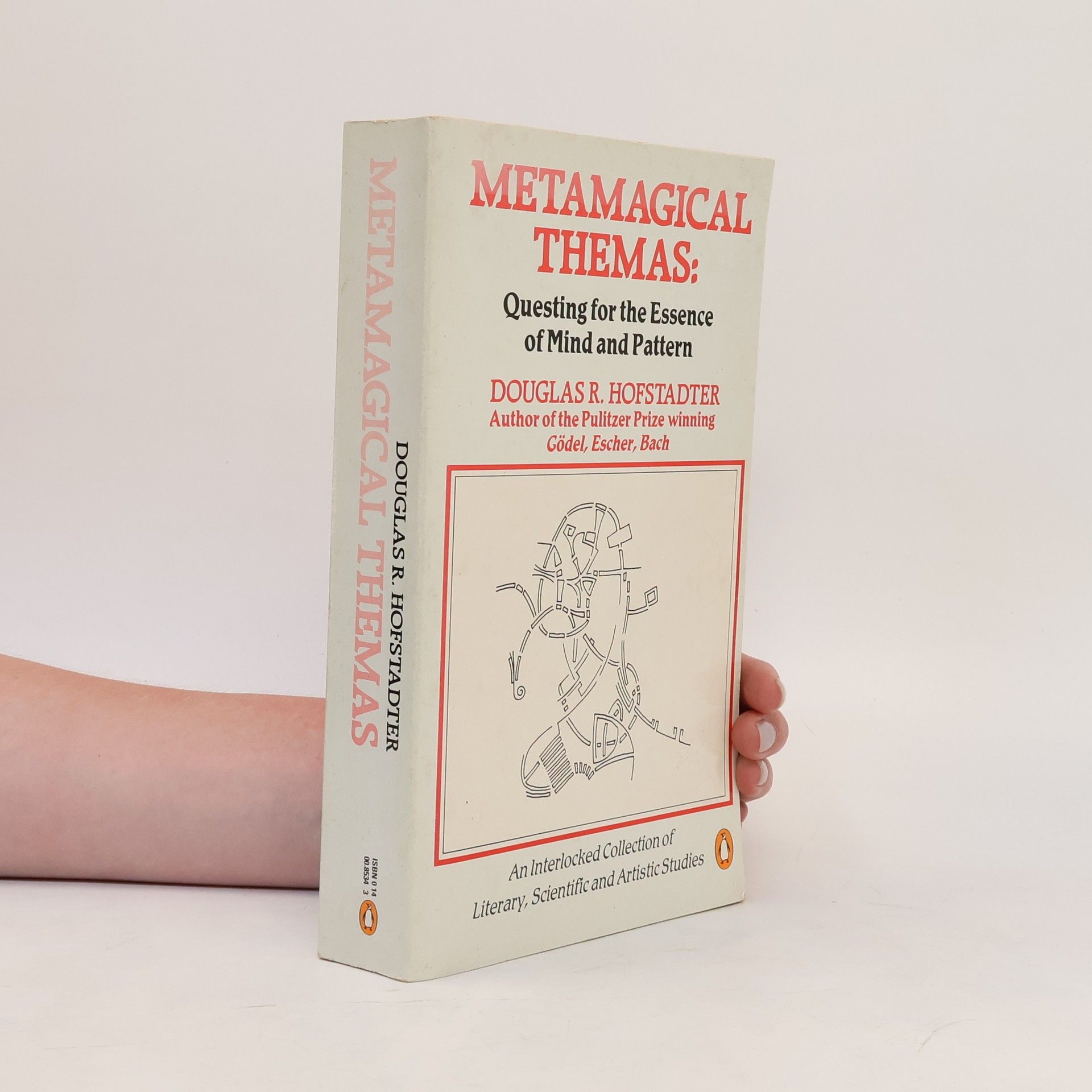


La sfida della complessità
- 448 páginas
- 16 horas de lectura
La sfida della complessità nasce dall'irruzione dell'incertezza nelle nostre conoscenze, dallo sgretolarsi dei miti che per secoli hanno regolato il cammino della scienza moderna. Ma d'altra parte la fine della certezza, della completezza, dell'esaustività e dell'onniscienza non segnala soltanto la fine di un ordine, ma rende ineludibile una trasformazione delle domande e delle risposte su cui è basato il nostro sapere. Chiamati a raccolta da Gianluca Bocchi e Mauro Ceruti a metà degli anni ottanta, scienziati e pensatori come Ilya Prigogine e Francisco Varela, Stephen Jay Gould e Heinz von Foerster presentano e confrontano i loro itinerari nella “nuova scienza”, in un'opera che ha mantenuto intatta la sua freschezza ed esemplarità.
I am a Strange Loop
- 412 páginas
- 15 horas de lectura
What do we mean when we say “I”? Can thought arise out of matter? Can a self, a soul, a consciousness, an “I” arise out of mere matter? If it cannot, then how can you or I be here? I Am a Strange Loop argues that the key to understanding selves and consciousness is the “strange loop”—a special kind of abstract feedback loop inhabiting our brains. Deep down, a human brain is a chaotic seething soup of particles, on a higher level it is a jungle of neurons, and on a yet higher level it is a network of abstractions that we call “symbols.” The most central and complex symbol in your brain or mine is the one we both call “I.” The “I” is the nexus in our brain where the levels feed back into each other and flip causality upside down, with symbols seeming to have free will and to have gained the paradoxical ability to push particles around, rather than the reverse. For each human being, this “I” seems to be the realest thing in the world. But how can such a mysterious abstraction be real—or is our “I” merely a convenient fiction? Does an “I” exert genuine power over the particles in our brain, or is it helplessly pushed around by the all-powerful laws of physics? These are the mysteries tackled in I Am a Strange Loop, Douglas R. Hofstadter’s first book-length journey into philosophy since Gödel, Escher, Bach. Compulsively readable and endlessly thought-provoking, this is the book Hofstadter’s many readers have long been waiting for.
"There is perhaps no better way to prepare for the scientific breakthroughs of tomorrow than to learn the language of geometry." ―Brian Greene, author of The Elegant Universe. Geometry encompasses much more than shapes and numbers; it influences architecture, microchips, car design, animated films, food molecules, and even our body chemistry. Siobhan Roberts presents Donald Coxeter, one of the greatest geometers of the twentieth century, as the ideal guide to the wonders of geometry. Historical figures like Pythagoras, Plato, Archimedes, and Euclid were all geometers, and their legacies highlight Coxeter's contributions, showcasing geometry as a dynamic, evolving field that has been foundational to civilization. His renowned Coxeter groups and diagrams are regarded by mathematicians as essential tools, and his most significant achievement lies in preserving classical geometry during a time when the discipline favored austerity and rationality. Coxeter's influence extended beyond mathematics; artist M. C. Escher credited him with inspiring his Circle Limit patterns, while inventor Buckminster Fuller acknowledged that his geodesic dome was greatly influenced by Coxeter's ideas. This book serves as an elegant portal into the captivating and intricate realm of geometry.
Godel's Proof
- 120 páginas
- 5 horas de lectura
Godel's Proof was first published in the US in 1958. In 1931 there appeared in a German scientific periodical a relatively short paper with the forbidding title "On Formally Undecidable propositions of Principia Mathematica and Related Systems". Its author was Kurt Godel, then a young mathematician of 25 at the University of Vienna who since 1938 was a permanent member of the Institute for Advanced Study at Princeton. The paper is a milestone in the history of logic and mathematics. When Harvard University awarded Godel an honorary degree, the citation described the work as one of the most important advances in logic in modern times. At the time of its appearance, however, neither the title of Godel's paper nor its content was intelligible to most mathematicians.
A gripping story of mathematics, computers, cryptography, and homosexual persecution. Hodges tells how Turing's revolutionary idea of 1936-- the concept of a universal machine-- laid the foundation for the modern computer. Turing brought the idea to practical realization in 1945 with his electronic design. This work was directly related to Turing's leading role in breaking the German Enigma ciphers during World War II, a scientific triumph that was critical to Allied victory in the Atlantic. Despite his wartime service, Turing was eventually arrested, stripped of his security clearance, and forced to undergo a humiliating treatment program-- all for trying to live honestly in a society that defined homosexuality as a crime
Fluid Concepts and Creative Analogies
- 532 páginas
- 19 horas de lectura
Readers of earlier works by Douglas Hofstadter will find this book a natural extension of his style and his ideas about creativity and analogy; in addition, psychologists, philosophers, and artificial-intelligence researchers will find in this elaborate web of ingenious ideas a deep and challenging new view of mind.
Metamagical themas : questing for the essence of mind and pattern
- 880 páginas
- 31 horas de lectura
Includes articles, many of which originally appeared in Scientific American, on memes, innumeracy, William Safire, Frederic Chopin, Rubik's Cube, strange attractors, Lisp, Heisenburg's uncertainty principle, quantum mechanics, Alan Turing, sphexishness, Prisoner's dilemma, and other topics.
The mind's I : fantasies and reflections on self and soul
- 512 páginas
- 18 horas de lectura
Brilliant, shattering, mind-jolting,The Mind's Iis a searching, probing nook--a cosmic journey of the mind--that goes deeply into the problem of self and self-consciousness as anything written in our time. From verbalizing chimpanzees to scientific speculations involving machines with souls, from the mesmerizing, maze-like fiction of Borges to the tantalizing, dreamlike fiction of Lem and Princess Ineffable, her circuits glowing read and gold,The Mind's I opens the mind to the Black Box of fantasy, to the windfalls of reflection, to new dimensions of exciting possibilities.

